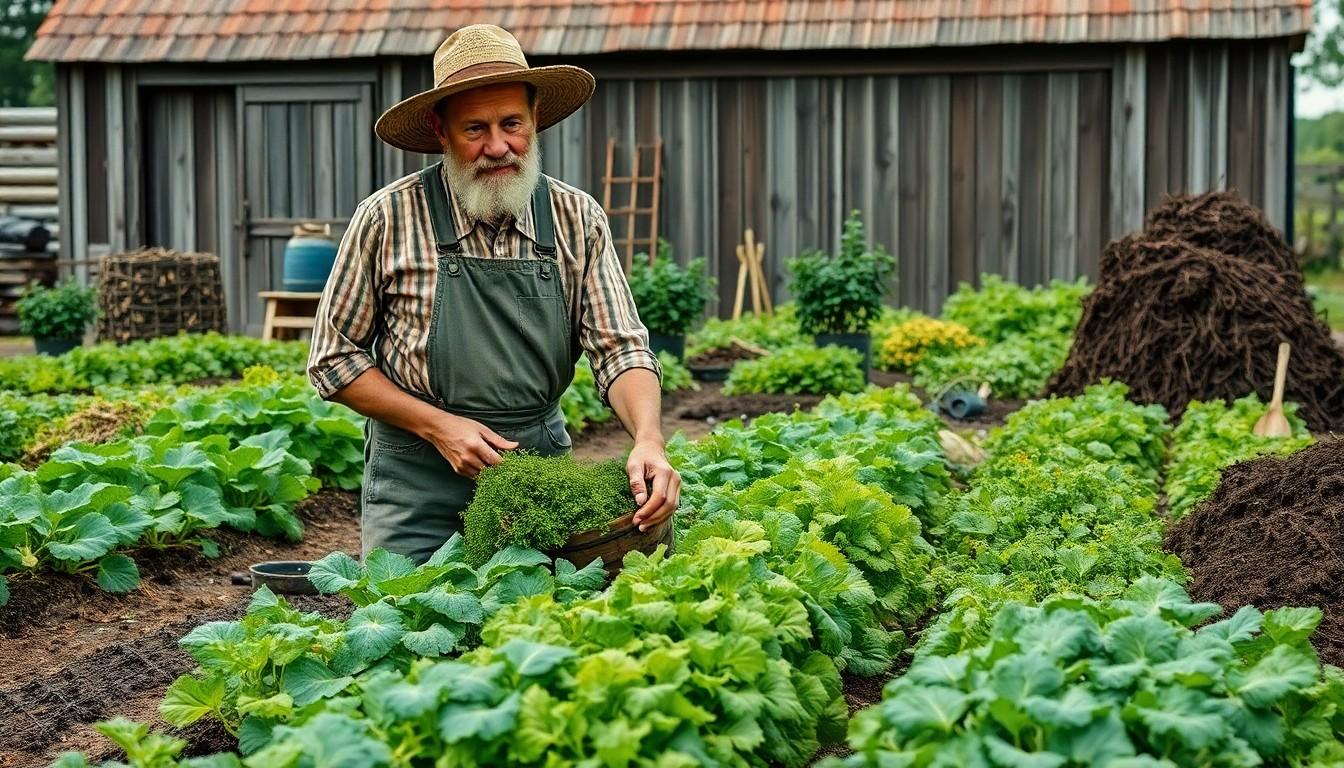Physical Address
304 North Cardinal St.
Dorchester Center, MA 02124

In a world where the term “organic” has become as trendy as avocado toast, understanding what organic farming truly means is more important than ever. It’s not just about avoiding pesticides or looking good at the farmers’ market. Organic farming is a holistic approach that nurtures the soil, crops, and ecosystem, creating a harmonious relationship between nature and agriculture.
Imagine a farm where the chickens roam free, the veggies grow without synthetic fertilizers, and the soil is as rich as a chocolate cake. That’s organic farming in action. It’s a commitment to sustainability that not only benefits the environment but also delivers fresh, tasty produce. So let’s dig deeper and uncover the roots of organic farming—because who wouldn’t want to know how their food is grown while feeling like a responsible eco-warrior?
Organic farming represents a method of agriculture that prioritizes sustainability and natural processes. This approach fosters a balanced ecosystem, emphasizing the importance of healthy soil and biodiversity.
Organic farming relies on several key principles. It advocates for the use of natural inputs instead of synthetic chemicals. Crop rotation enhances soil fertility and breaks pest cycles. Additionally, biodiversity encourages resilience against diseases. Farmers promote healthy ecosystems through practices like composting and cover cropping. All these principles contribute to nurturing both agricultural productivity and environmental health.
Organic farming offers numerous benefits. It promotes soil health, which results in better crop yields over time. Organic produce contains fewer pesticide residues, providing safer options for consumers. This farming method supports biodiversity, fostering habitats for various species. Organic farms often consume less energy because they rely on natural processes rather than synthetic fertilizers. Furthermore, the market for organic products continues to grow, enhancing farmers’ economic viability.

Organic farming has its roots in ancient agricultural practices, where methods emphasized natural inputs and sustainable techniques. Understanding its evolution showcases how societies adapted farming practices over time.
Traditional farming practices laid the groundwork for modern organic farming. Early civilizations relied on natural composting, crop rotation, and seed selection. These methods enhanced soil health and crop resilience. In the early 20th century, pioneers like Sir Albert Howard and J.I. Rodale began to re-establish these principles, promoting what became known as organic farming. Interest in organic methods surged during the 1960s and 1970s, driven by growing awareness of chemical agriculture’s impact on health and the environment. This period catalyzed grassroots movements that focused on food quality and sustainability.
Several key milestones shaped the organic farming landscape. The establishment of the Soil Association in 1946 marked one of the first formal movements advocating organic farming. In 1972, the first Organic Food Production Act passed in the United States, setting standards for organic labeling. The 1990 Organic Foods Production Act further advanced this framework by establishing national standards. Growth in consumer demand led to the USDA’s National Organic Program in 2002, providing clear guidelines for organic certification. Each of these milestones reinforced organic farming’s presence in global agriculture, enhancing credibility and consumer trust.
Organic farming employs various techniques that promote sustainability and ecological balance. These methods prioritize natural processes over synthetic inputs, ensuring healthy soil and crops.
Crop rotation enhances soil health by alternating the types of crops grown in a specific area over time. Diverse crops help break pest and disease cycles, reducing reliance on chemical interventions. Farmers often implement these practices to improve nutrient availability and prevent soil degradation. For instance, rotating legumes with grains replenishes nitrogen levels. Additionally, incorporating multiple crops increases biodiversity, fostering a resilient ecosystem that supports beneficial organisms.
Natural pest management utilizes ecological principles to control pest populations without chemicals. Techniques such as introducing beneficial insects or using traps promote a balanced ecosystem. For example, ladybugs target aphids, effectively reducing their numbers. Utilizing companion planting, where certain plants deter pests, also minimizes the need for pesticides. Regular monitoring of pest levels helps farmers make informed decisions, ensuring the health of both crops and the environment.
Organic farming faces numerous challenges that can hinder its growth and sustainability. Understanding these obstacles is essential for farmers, consumers, and policymakers alike.
Economic challenges significantly impact organic farmers. High input costs for organic seeds and natural fertilizers can reduce profit margins. Additionally, the transition from conventional to organic practices often involves a period of lower yields during the adjustment phase. Market fluctuations also affect prices for organic products, leading to uncertainty in revenue. Competing with cheaper conventionally grown produce poses another hurdle, as consumers may prioritize lower prices over organic options. Limited access to funding and resources for small-scale organic farms further restricts growth opportunities.
Environmental challenges persist in the realm of organic farming. Climate change affects crop yields and compels farmers to adapt their practices to shifting weather patterns. Soil erosion remains a concern, as organic methods rely heavily on maintaining healthy soil structure and fertility. Pest pressures can escalate due to warmer temperatures, making natural pest management strategies more complex. Water scarcity poses another obstacle, particularly in regions experiencing drought. Competing pressures from urbanization and land development threaten available farmland, complicating efforts to maintain sustainable practices and protect biodiversity.
Organic farming represents a vital movement toward sustainable agriculture that respects the environment and promotes biodiversity. By prioritizing natural processes and healthy soil, it not only produces safer food but also supports a thriving ecosystem. As more consumers become aware of the benefits of organic practices, the demand for fresh and flavorful produce continues to grow.
Addressing the challenges organic farmers face is crucial for the future of this industry. With ongoing support from consumers and policymakers, organic farming can flourish, ensuring a healthier planet and food supply for generations to come. Embracing organic principles is not just a choice for individuals; it’s a step toward a more sustainable and responsible way of living.